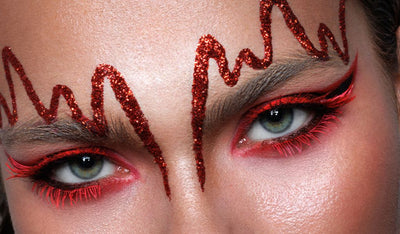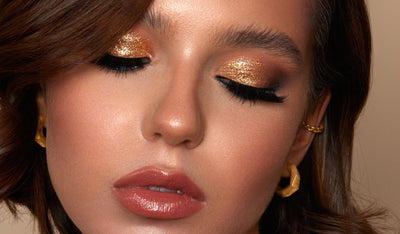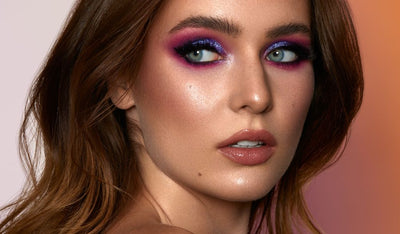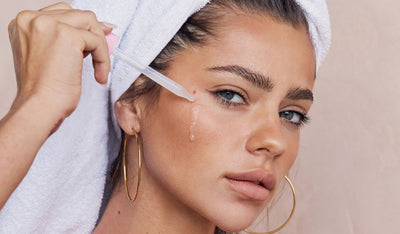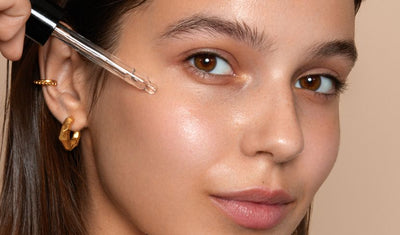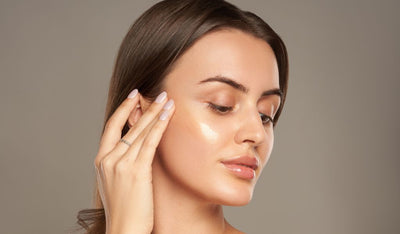Do you want to do something good for your skin and enjoy a radiant, even complexion? Proper skin care starts from the inside - because with the right diet and enough vitamins, you're also doing something good for your skin. Find out which vitamins are particularly important for the skin and get helpful tips here!
11 simple vitamin tips for your skin
At around two square meters, our skin is our largest sensory organ and protects our body from external influences. At the same time, it is a mirror of our inner self.
When we are unwell, it shows on our skin and what we put into our body through our diet can also affect the skin. In addition to the macronutrients that keep our body running, vitamins and minerals are particularly important for the skin.
With a balanced diet you can achieve a lot from the inside. Here you can find out more about the individual vitamins and what they contain:
Vitamin A
Vitamin A occurs naturally in dark green vegetables and fruit, but also in liver. It is considered the ultimate anti-aging ingredient, smoothes wrinkles and increases skin elasticity.
But vitamin A is also very effective against acne. For example, there are prescription vitamin A preparations, either pills to be taken or high-dose creams that are enriched with retinoids (another form of vitamin A) and help against severe acne.

As an antioxidant, beta-carotene protects the skin from oxidative stress and is then converted by the body into vitamin A. As the name suggests, beta-carotene is mainly found in carrots, but you can also get the antioxidant from spinach, red peppers, apricots and mango.
Vitamin B2
Vitamin B is divided into eight individual vitamins, each of which has different functions and benefits. Vitamin B2, also known as riboflavin, supports metabolism and general skin health, for example. It is mainly found in meat, dairy and whole grain products.
Vitamin B3
Vitamin B3 is also found mainly in meat and dairy products, but you can also get this valuable vitamin from fish and eggs. However, if you follow a vegetarian or vegan diet, it is a good idea to have your vitamin B3 levels checked by a doctor and possibly take a dietary supplement.
Vitamin B3 is known to many as niacinamide, as it is considered one of the trendiest skin care ingredients. But vitamin B3 can also do a lot of good for your skin from the inside: thanks to its antioxidant effect, it protects against harmful influences and also supports the metabolism and regeneration of the skin.
Vitamin B5
Vitamin B5, also known as pantothenic acid, helps fight skin impurities from within and supports skin elasticity. It is found mainly in fish and meat, but also in legumes and whole grain products.
Vitamin B7
You probably know vitamin B7 as biotin. The vitamin helps to form keratin, which is the basic building block of hair and a structural protein in skin and nails. Biotin therefore supports the protective function of skin and hair and also helps with skin regeneration. It is mainly found in eggs, nuts, soybeans and oatmeal.
Dietary supplements are also a great way to support your skin, hair and nails with the most important nutrients. Note that you should only take these in addition to your balanced diet. They are not a replacement for it, but can be a great addition, especially to a vegetarian or vegan diet.
Our favorite for effective skin supplements
Find out more about supplements that support the health of your skin here:
HAIRtamin – SKINtamin 1 Month

29,90 €
with the code
-0%
Latest lowest price: 29,90 €
(Prices incl. VAT, plus shipping)
HAIRtamin – HAIRtamin Advanced Formula 1 Month
32,90 €
with the code
-0%
Latest lowest price: 32,90 €
(Prices incl. VAT, plus shipping)

HAIRtamin – HAIRtamin Gummy Stars 1 Month
25,83 €
with the code
-30%
Latest lowest price: 36,90 €
(Prices incl. VAT, plus shipping)

36,90 €
INAO by Essence – Clean Skin Gummies
Vitamin C
Vitamin C is probably the best-known vitamin and, like ascorbic acid, is an equally effective ingredient in skincare. But vitamin C also has positive effects on the skin in addition to its immune-boosting benefits.
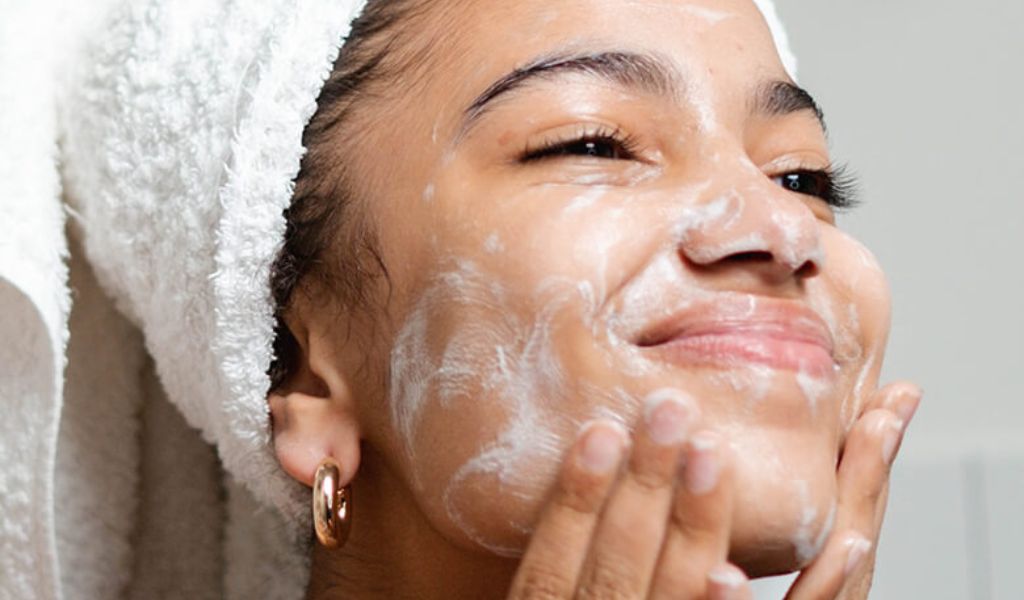
On the one hand, as an antioxidant, it protects the skin against harmful environmental influences and on the other hand, it boosts collagen production and thus increases the elasticity of the skin. You can absorb vitamin C through citrus fruits, black currants, tomatoes, red peppers and spinach.
Vitamin E
Vitamin E is a great anti-aging ingredient and is mainly found in nuts and olive oil. So don't be afraid of healthy fats!
It makes the skin more resilient and protects it from harmful environmental influences. At the same time, vitamin E supports wound healing and has an anti-inflammatory effect. It also strengthens the skin barrier and balances the moisture balance.
Omega-3
Omega-3 fatty acids are part of our cell walls. So if you consume more of them through your diet, you support the stability of the cells and also ensure a healthy moisture balance in the cells.
Omega-3 fatty acids are mainly found in fish. But you can also get Omega-3 from walnuts and linseed.

Zinc
Although zinc is not a vitamin but a trace element, it can still have excellent effects on the skin. It promotes wound healing processes in the skin and counteracts increased sebum production.
Zinc is particularly important for maintaining full hair, healthy skin and strong nails. A deficiency is immediately noticeable: hair becomes thinner and falls out, nails break more easily and wounds heal more slowly.
You absorb zinc mainly through meat, dairy products, oatmeal and walnuts.
Selenium
Selenium is a trace element and mineral that helps maintain skin and hair and protects the skin from oxidative stress. Selenium is found in fish, meat, nuts and mushrooms.
Silicon
As a component of the skin and connective tissue, you support this when you consume silicon. It also supports collagen formation, making your skin appear more elastic and plump.
At the same time, silicon has strengthening properties for nails and hair and prevents premature breakage. It is found in grains such as barley and oats, but also in asparagus.
2 tips for great skin from within
Also remember to drink enough water. Between two and three liters is ideal so that you can balance the moisture levels of your skin from the inside.

Bad news for all those with a sweet tooth: Even though we love sweets so much, sugar is unfortunately the number one enemy of beautiful skin. Sugar is said to promote inflammation in the body and also encourage blemishes. So it's worth cutting back on your consumption of chocolate and the like for the sake of your skin.
We hope you found this article helpful and that these tips helped you. If so, we would be happy if you share the article.
Artikel teilen:




























